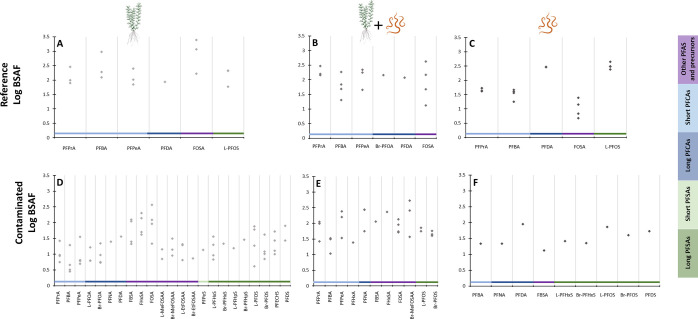Figure 2.
Logarithmically transformed biota to sediment bioaccumulation factors (BSAFs) for the uptake of PFAS from reference (Gaasperplas) and contaminated (Blokkersdijk) sediment into the roots of Myriophyllum spicatum [kg sediment dw/kg root dw] in the absence (A and D, respectively) and presence of worms (Lumbriculus variegatus) (B and E, respectively) and into the worms [kg sediment dw/kg worm dw] themselves (C and F, respectively). Each data point represents one replicate. The horizontal color bars indicate the different PFAS subclasses, with the compounds per subclass plotted with increasing number of fluorinated carbons. In general, n = 4, except for some compounds that were not detected in all replicates, as can be seen in Tables S11–S13. BSAFs in worms shown in plot F are based on only 1 replicate.

